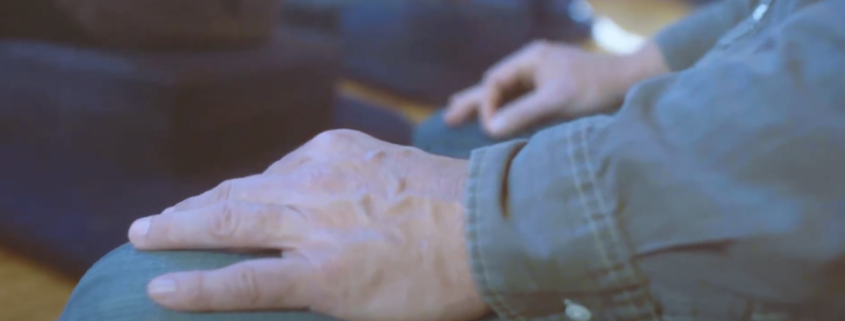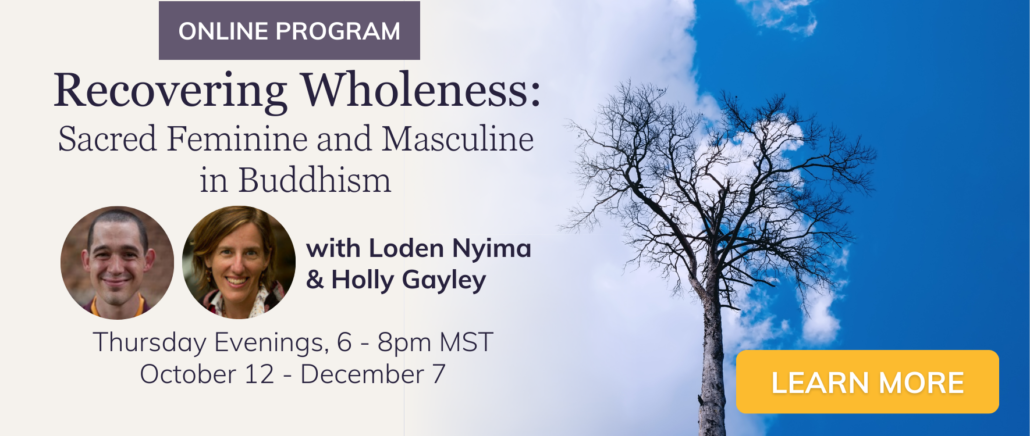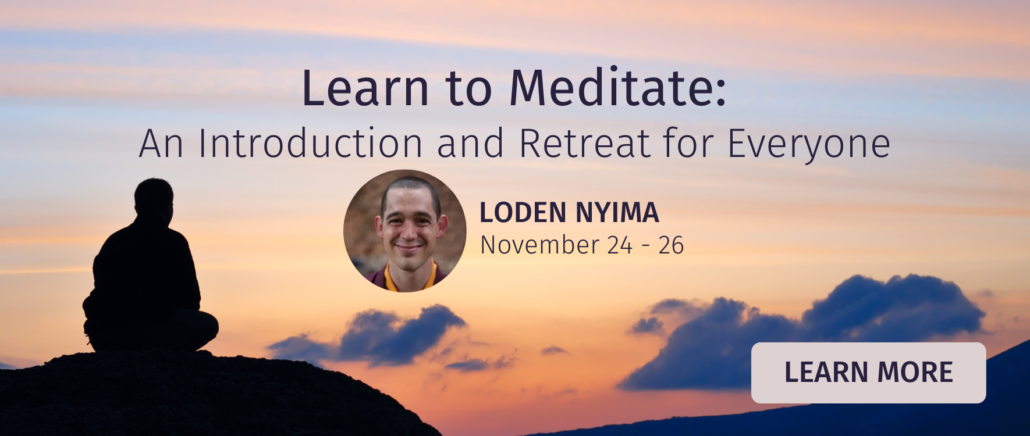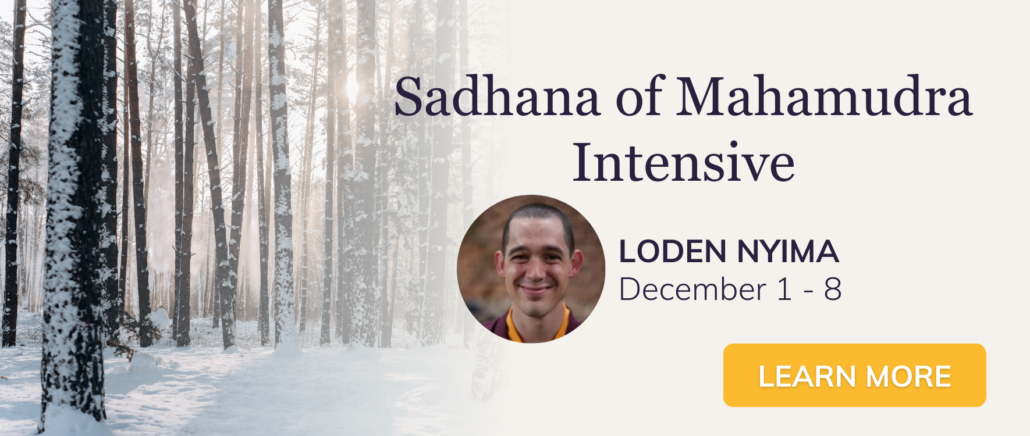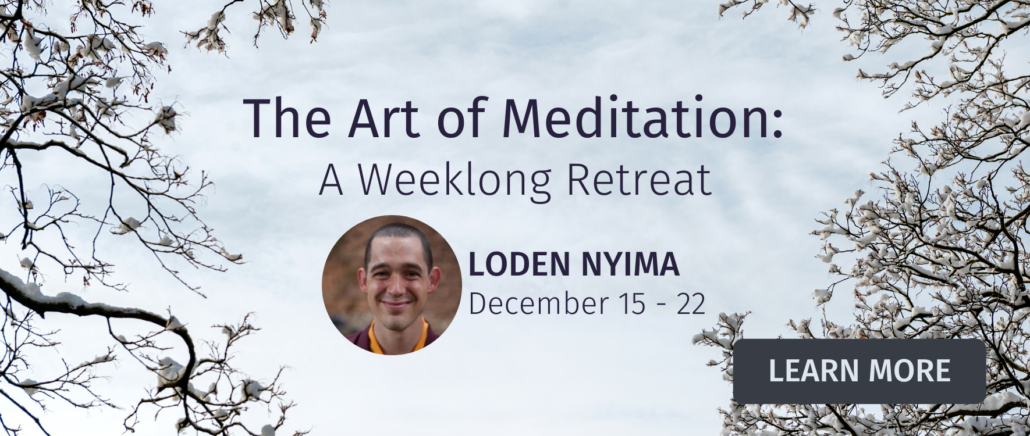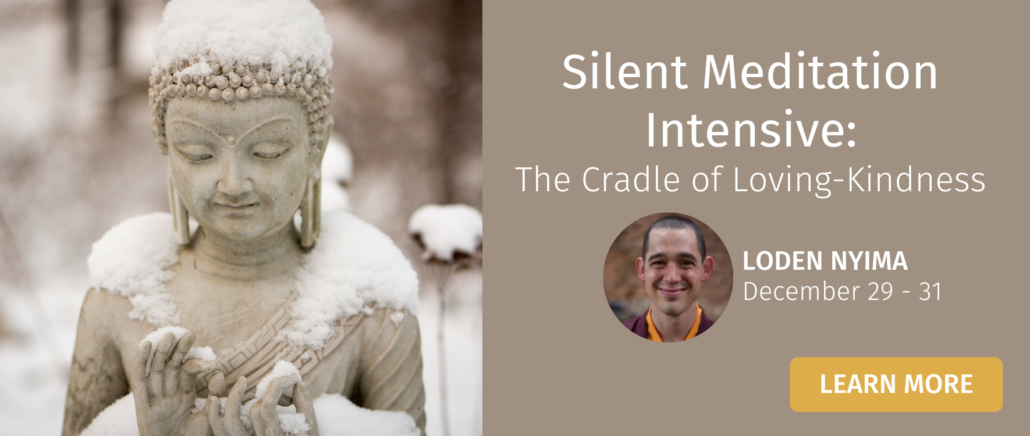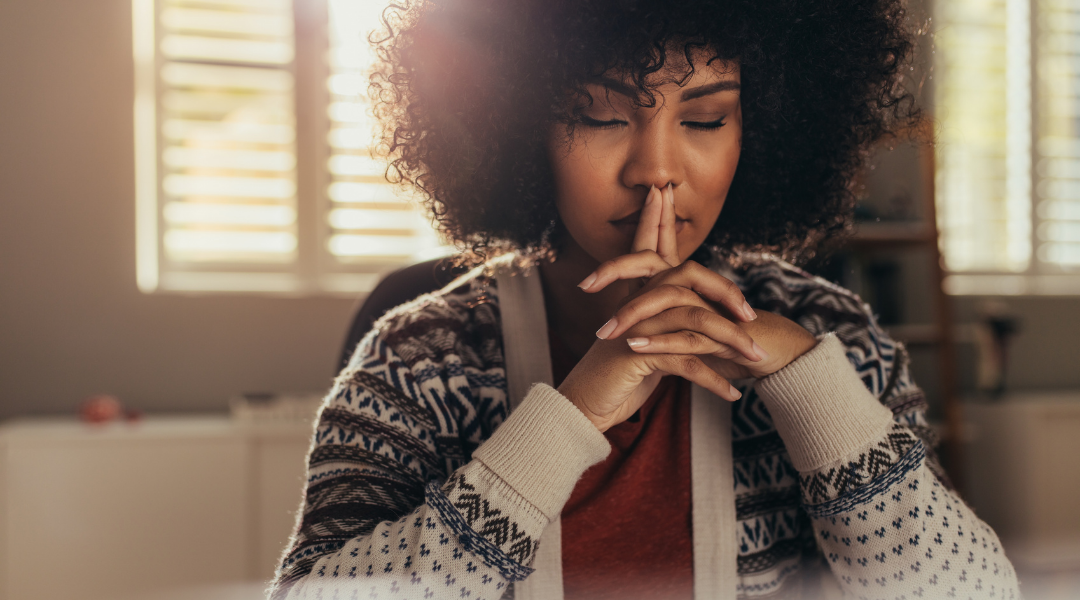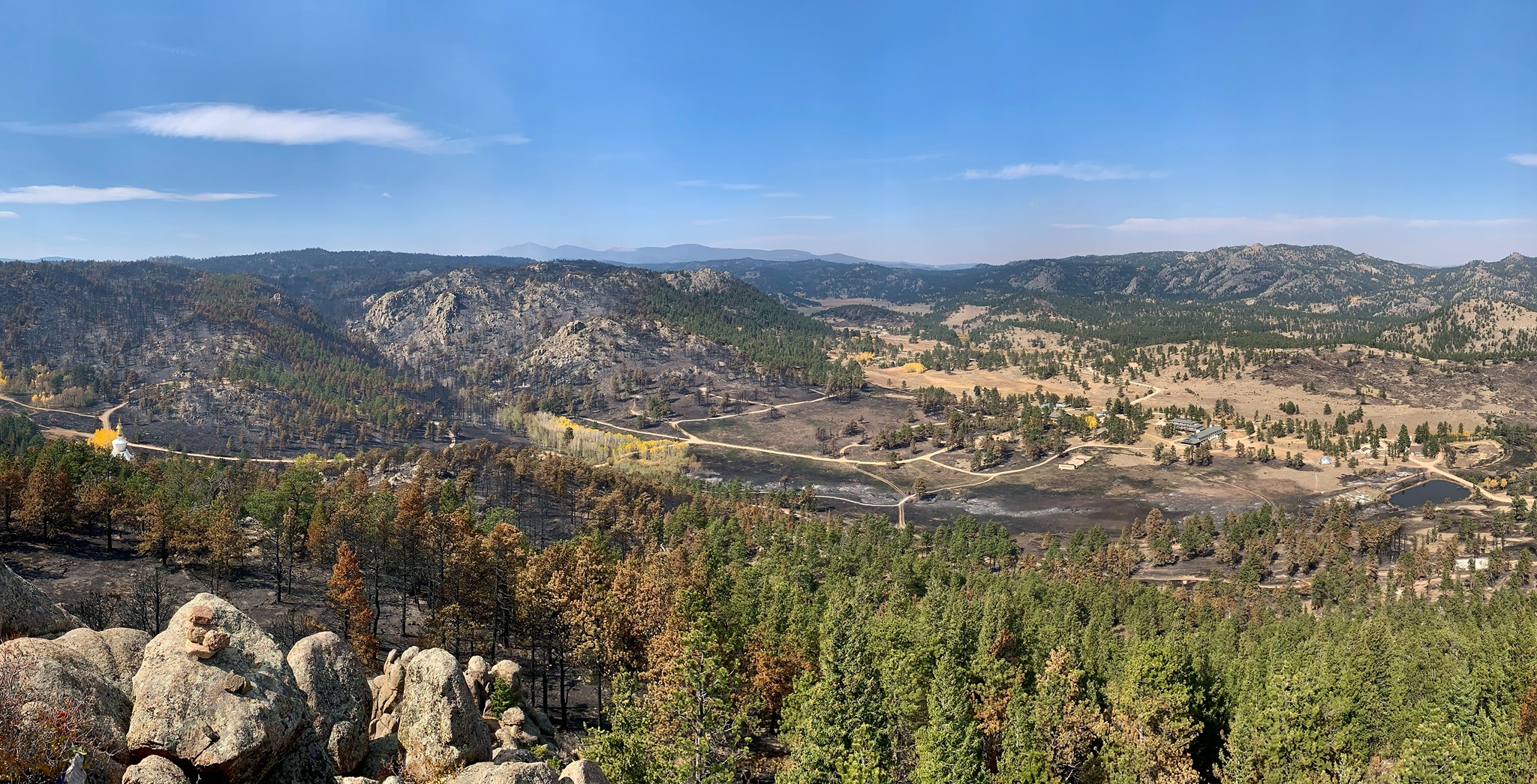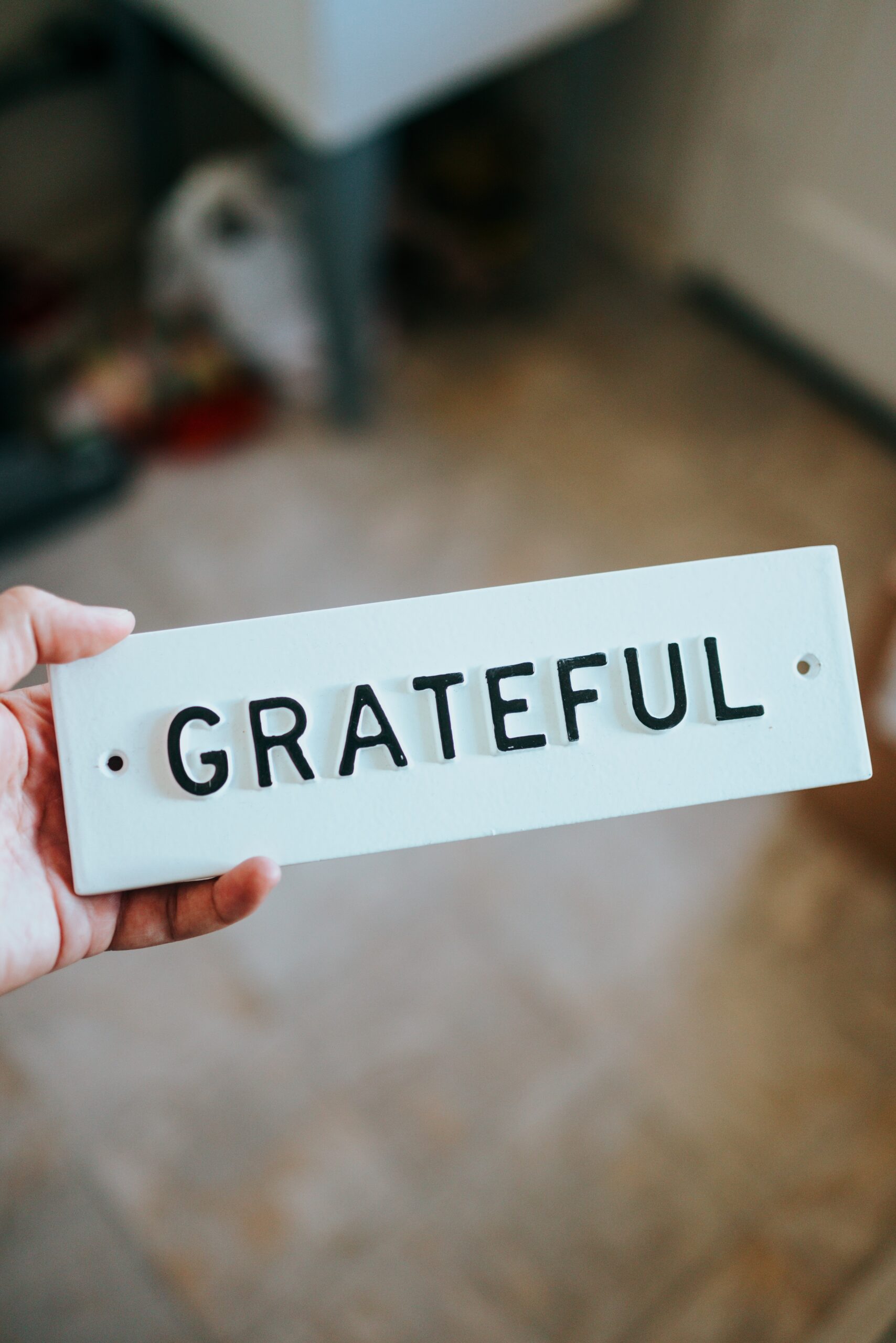Daily Practice: Our Reservoir of Sanity
by: Loden Nyima, Resident Teacher at DMC
Meditation practice is a lot like physical exercise: the consistency is more important than the amount. Having a daily meditation practice can be key to seeing real benefits in our lives. Every time we practice, it’s as if we’re deepening our reservoir of sanity, peace, resiliency, from which we can draw at any moment when we need it.
The right amount of daily practice is the amount that feels attainable to us—even on, or especially on, a busy day. If we pick an amount that we know we can do, we’ll do it, and we’ll feel good about it, and that will help us build momentum and want to keep practicing, or even extend our practice.
However, if we pick an amount that’s too much, we might get to it once in a while and just feel bad the rest of the time…that doesn’t help.
So, err on the easy side. Ten minutes a day can actually be quite good. It sounds small, but try it out and see…or, 15, 20, or 30 minutes, or more, really whatever feels right to you. You’re the only one who will know. But start with an amount that’s like “oh yeah, I could definitely do that, no problem, in fact I could do more.”
Often first thing in the morning can be a good time to practice, or also after work or in the evening. Some people like to do a little bit at each one of those times and build their practice that way. Lunch break can also be a good time. Really whenever you can find in your day that works.
As well, it can be helpful to designate a place in our home or at work that supports our practice. Somewhere we can have our cushion, chair, or whatever we prefer to meditate on. Certainly we want to put our phones away and not have too many things around us that are distracting. We can also arrange any objects that inspire our practice. Outside in nature can also be perfect.
Once I was staying with a friend while traveling, and we were drinking coffee in the morning and hanging out. Then, an alarm on his phone went off, and he said “ah, excuse me, it’s my time to go meditate”. Then he just walked up his stairs, closed his door, and that was that.
I sat there, alone, and went “Woooowwww, he’s my HERO!!!”
Then I thought about it, and I thought, you know what, he’s got the right idea, that’s really what we have to do these days.
The thing is, if we wait for life to slow down in order to practice, we’ll die waiting.
Many of us have cultural conditionings that prioritize work, or basically anything others need from us, and then if there’s time left that’s when we take care of ourselves. But really, we’re the only ones who get to decide what’s meaningful for us in life and how we want to use it. Our boss won’t go with us when we die.
The more we practice, the more we care for our own spiritual, emotional, and physical well-being, the more available we are to others and the more helpful we can be to everyone around us. It’s an odd kind of selfishness if making time for meditation results in being more patient, kind, loving, and helpful to others. But, we have to start with ourselves, or at least take care of ourselves while we care for others.
An activist I admire greatly once said, “I vow not to burn out”.
So, I recommend my friend’s method of just putting our meditation time in our phones or on our calendars, and treating it like any other commitment. Then, when life kicks in and there’s all kinds of things to do, our meditation doesn’t get lost. Rather, it’s just like a doctor’s appointment or a work responsibility or anything else: we’re booked at that time! We don’t have to explain it to anyone, we’re just not available then.
Everyone has a sphere of influence, has all kinds of people we interact with everyday and all kinds of choices we make. If we bring even a little more clarity, patience, kindness, honesty, courage, inspiration, or strength—or whatever it is we get from our practice—to those, that’s actually a pretty big deal when we really think about it. Particularly in difficult times in the world, how we live our values and engage with those directly around us in our local situations can become all the more precious.
Really, it’s up to you. If meditation is helpful in your life, then truly, you’re worth it, and the benefit it will have on others around you is worth it too. If you’ve noticed a difference in yourself—even minutely—then surely that makes a difference for others…especially when we consider the alternatives.
Join Loden for these upcoming retreats:
Read Next: Three Breaths at a Time: On the Spot Practices for Life
About the Author: Loden Nyima


